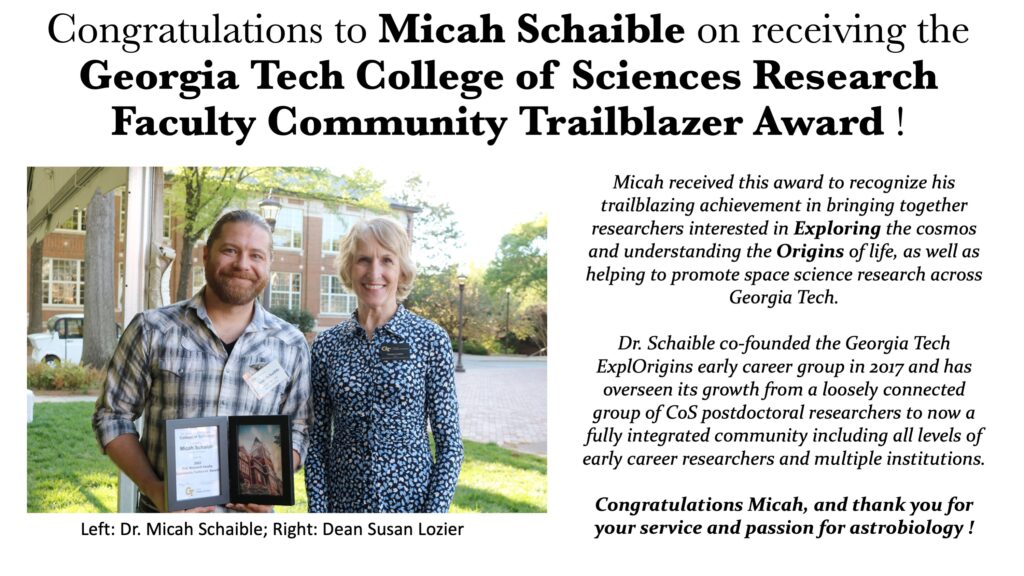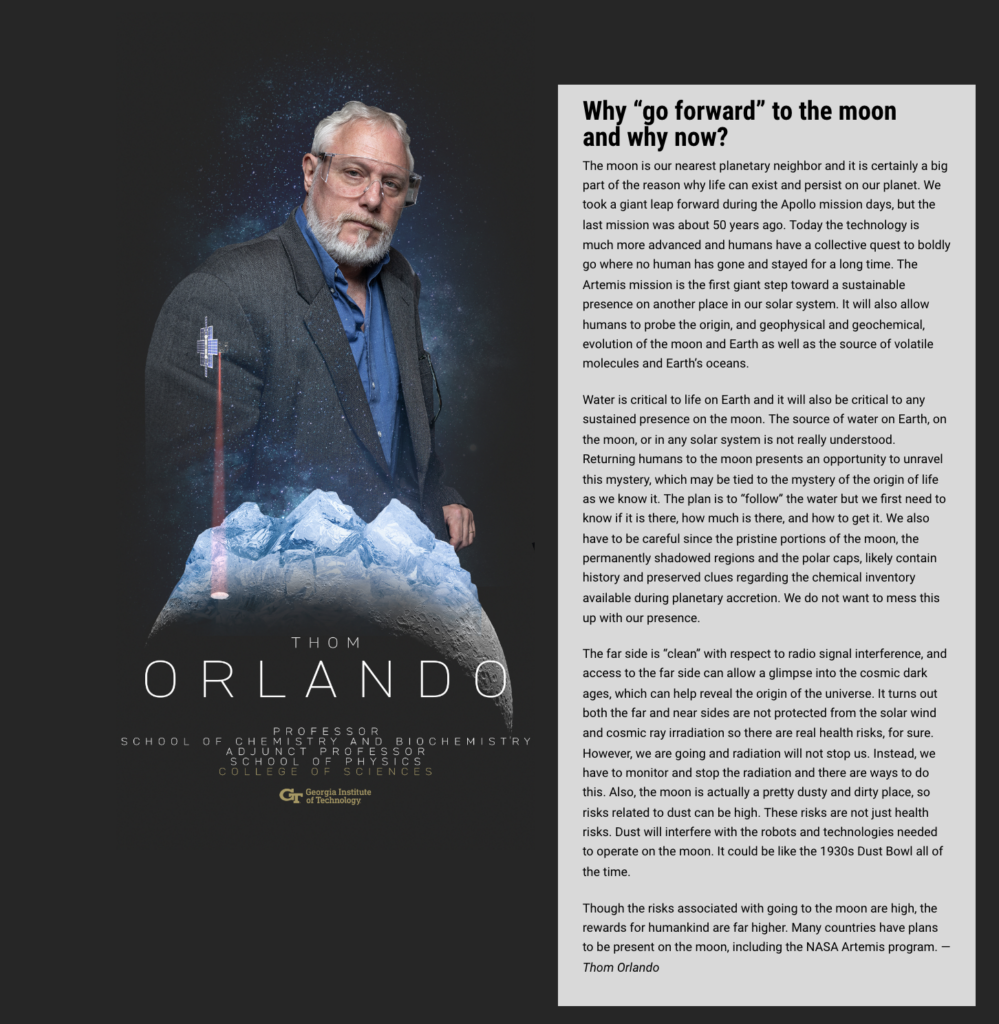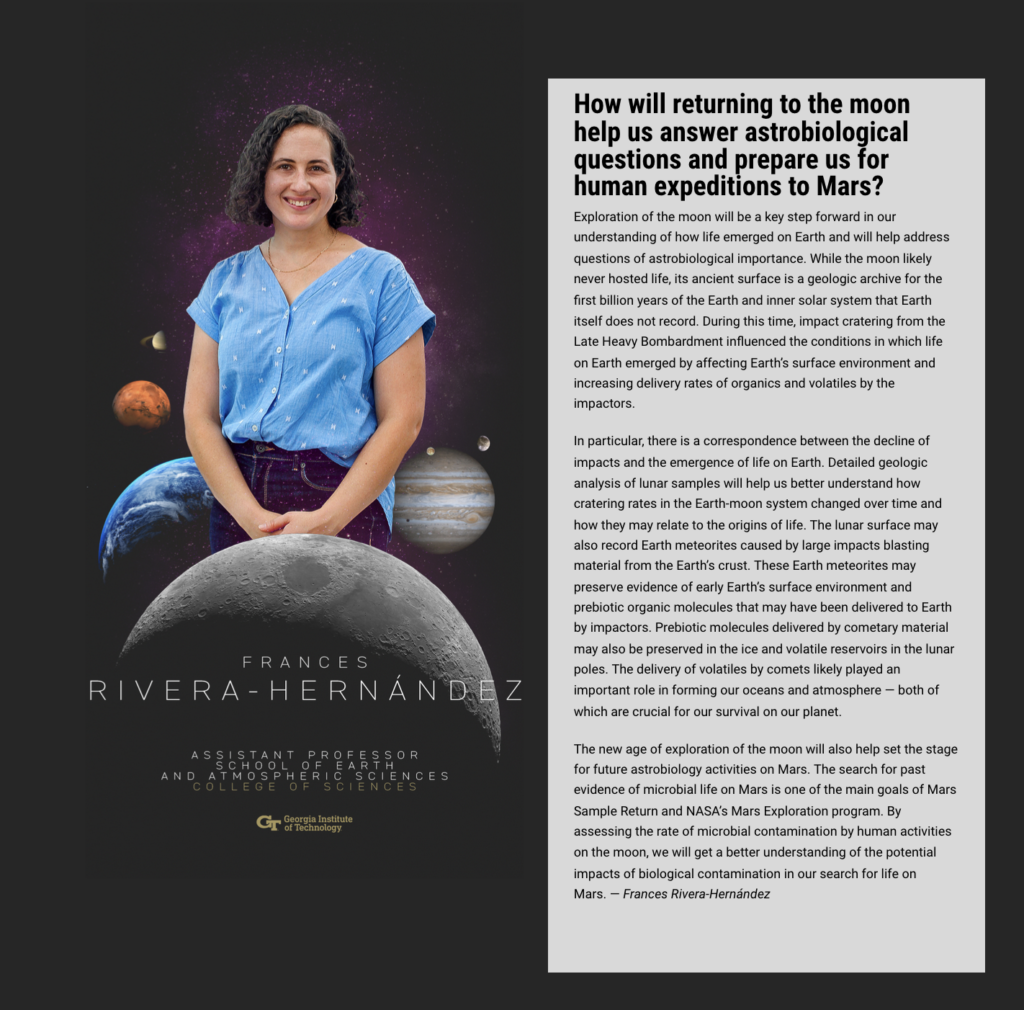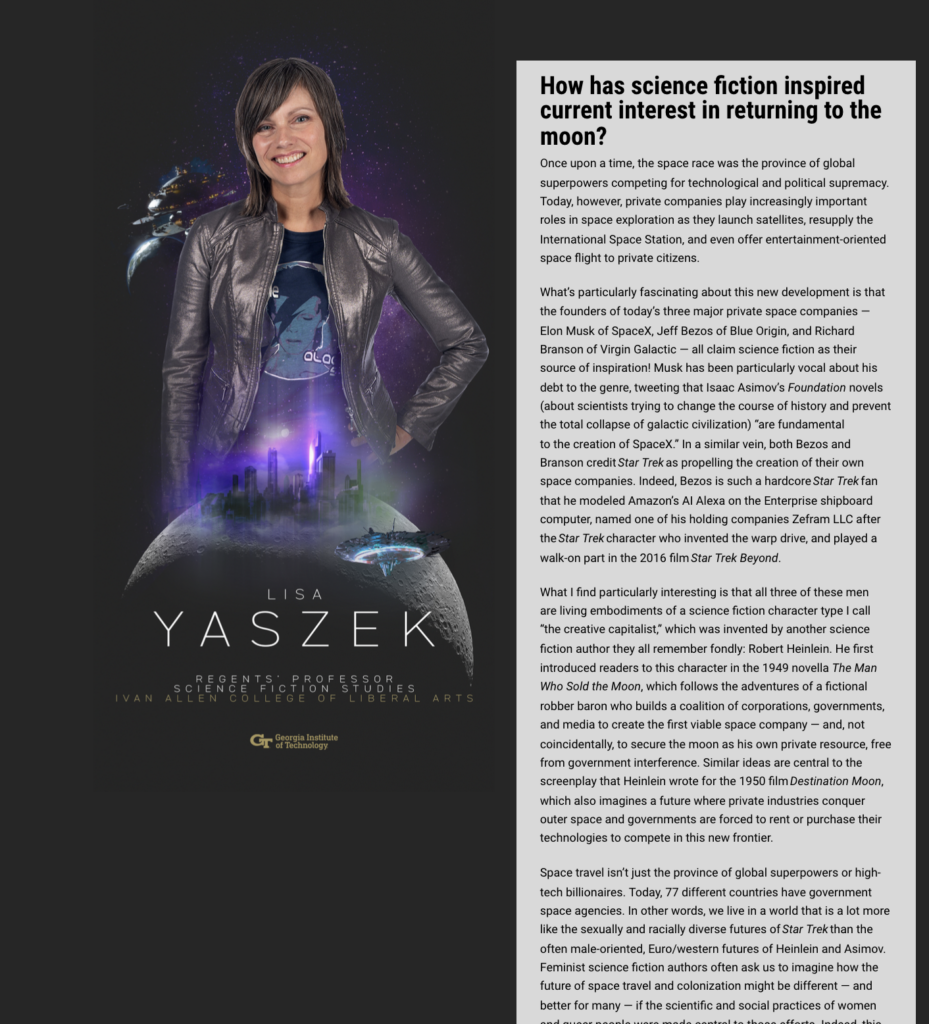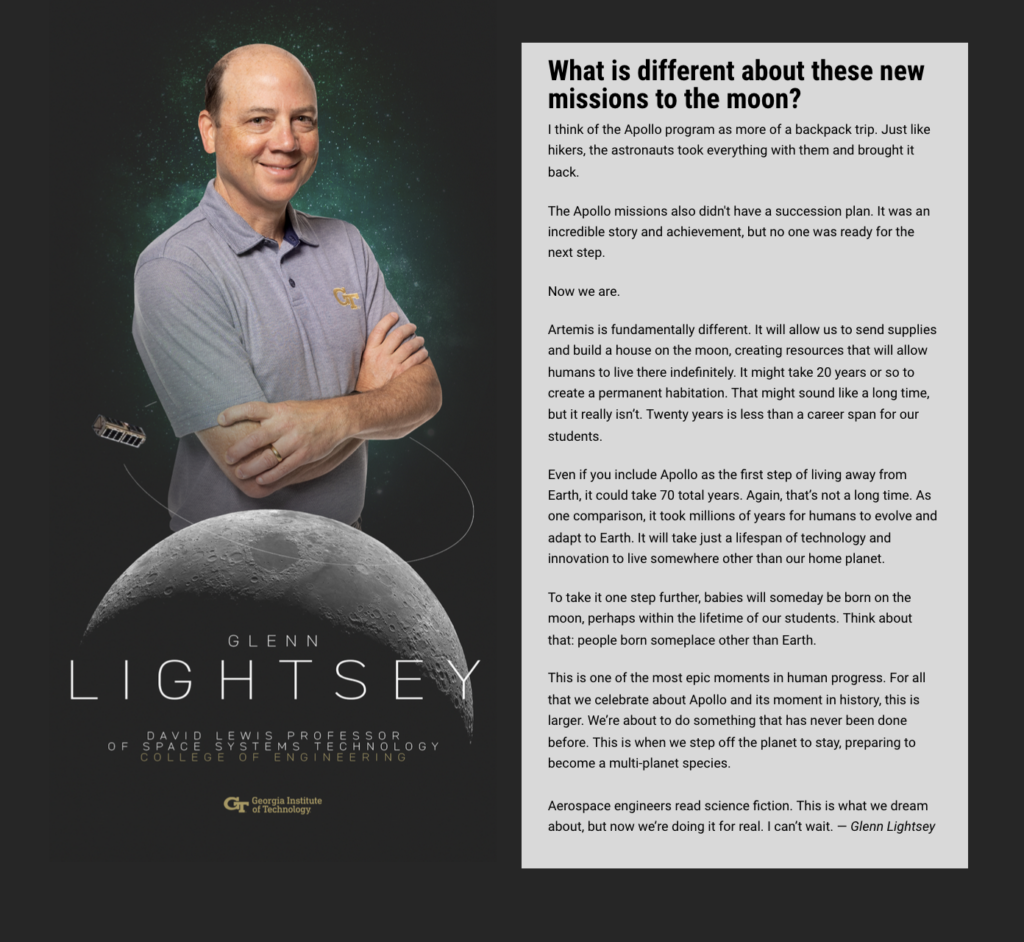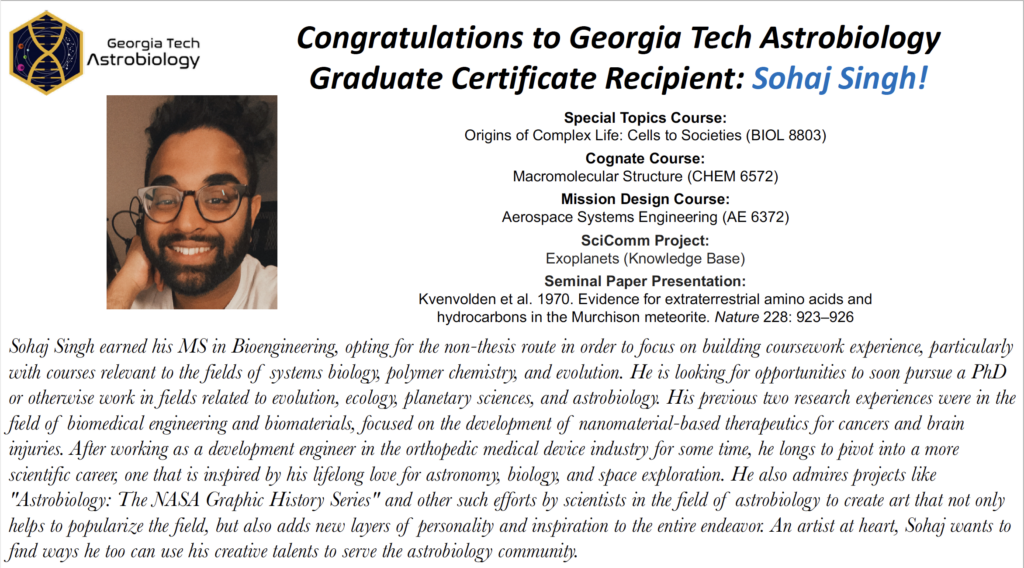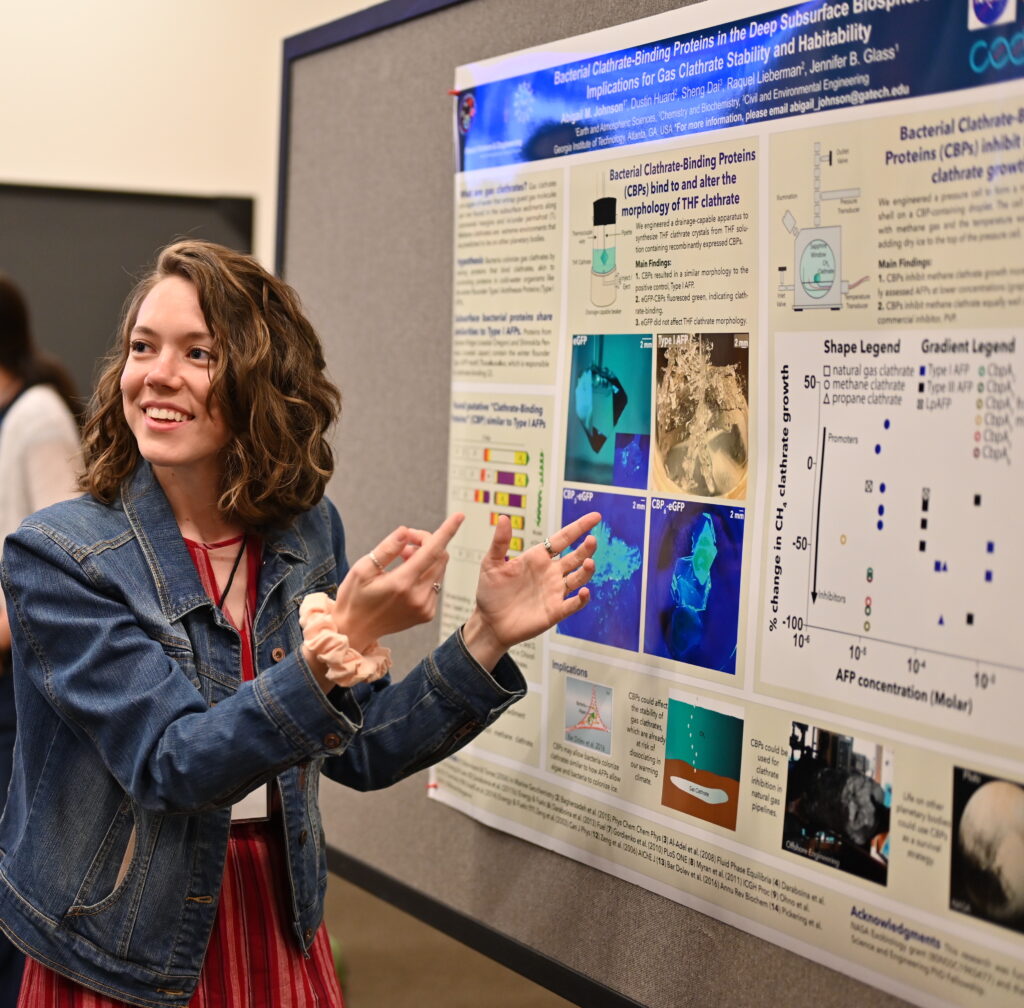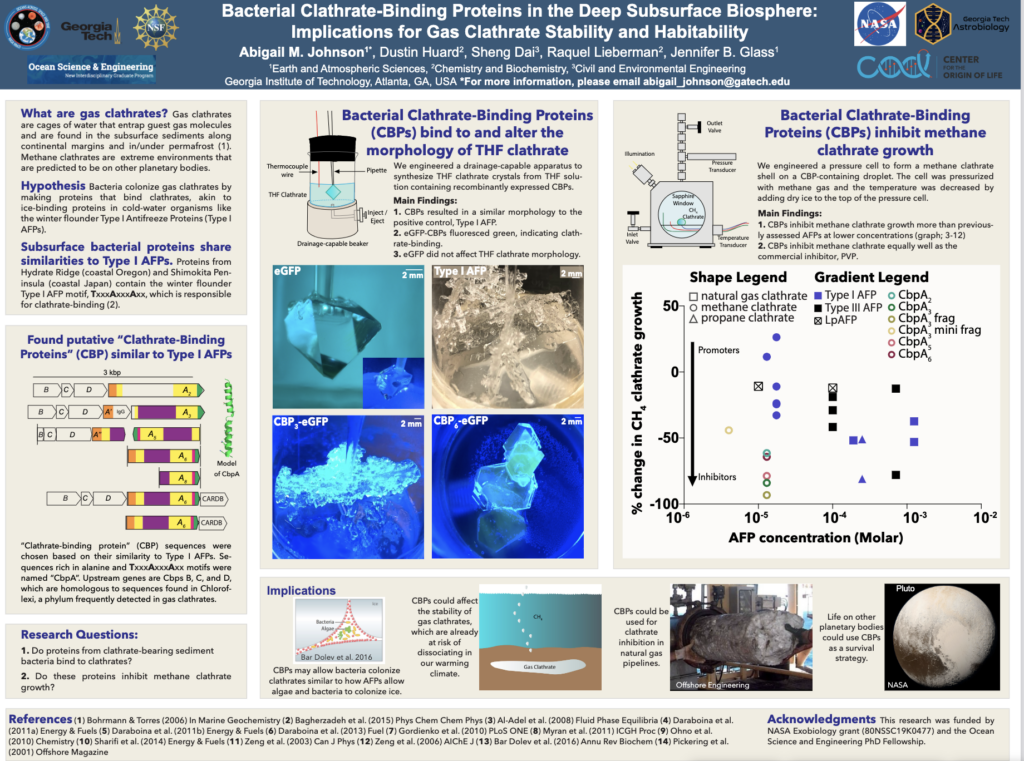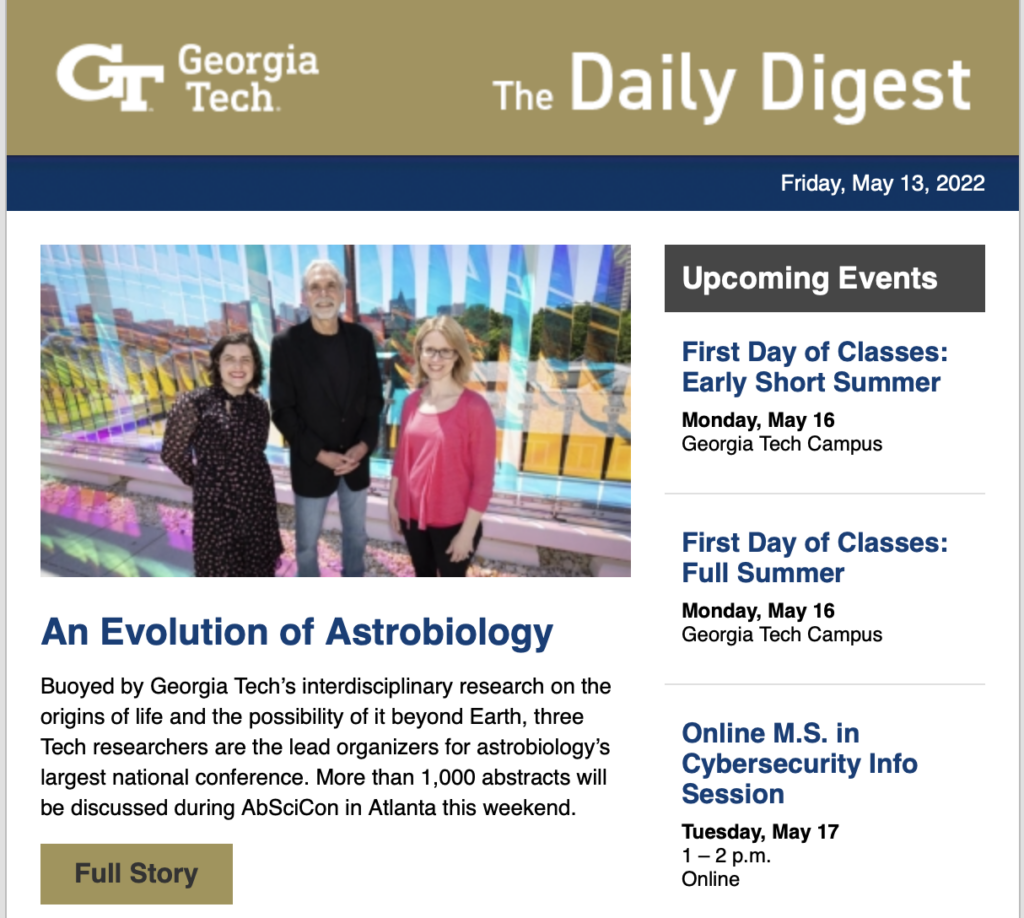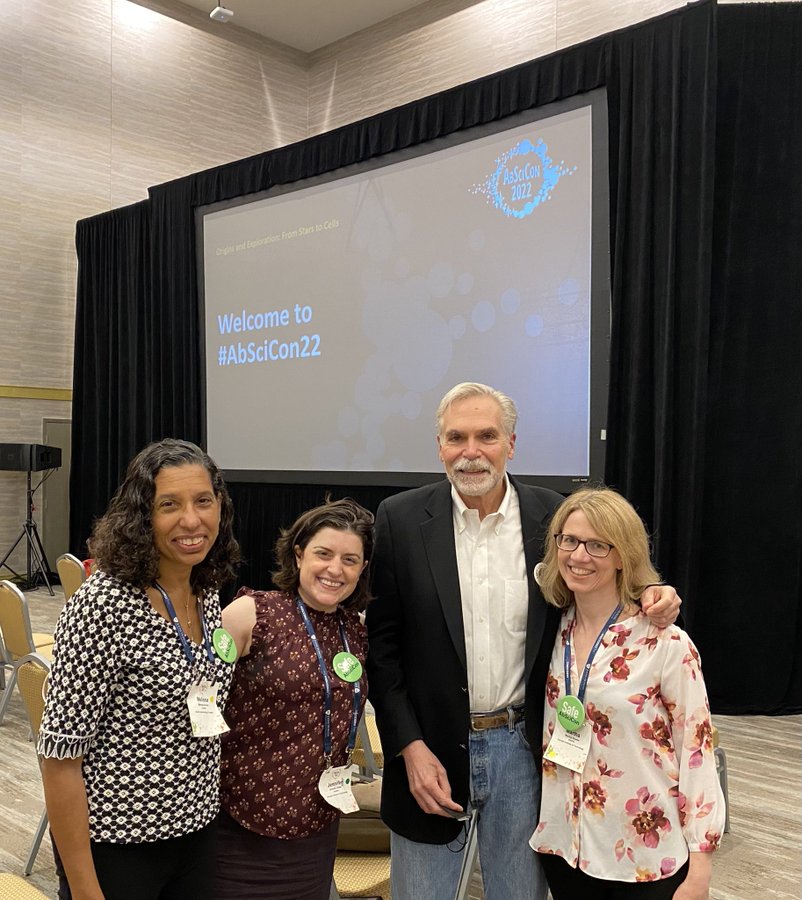Congratulations to Sohaj Singh!
Astrobiology Fall Distinguished Speaker and Social Event on Sept 2!
Congratulations to Alec Domotor!
Congratulations to Alec Domotor, our newest Georgia Tech Astrobiology Graduate Certificate Recipient!
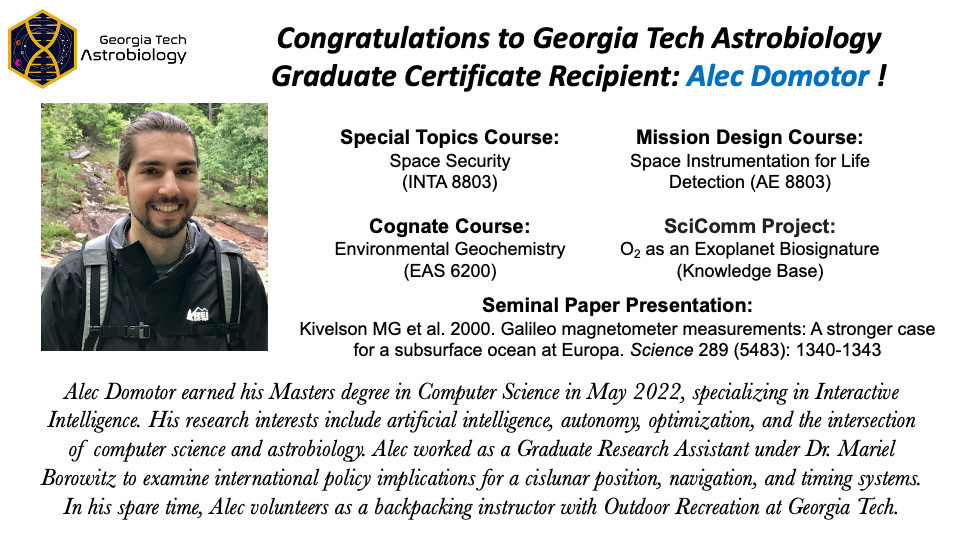
Congratulations Abbie Johnson!
Evolution of Astrobiology at Georgia Tech Featured in GT Daily Digest
Special Event : We Discovered Alien Life, Now What
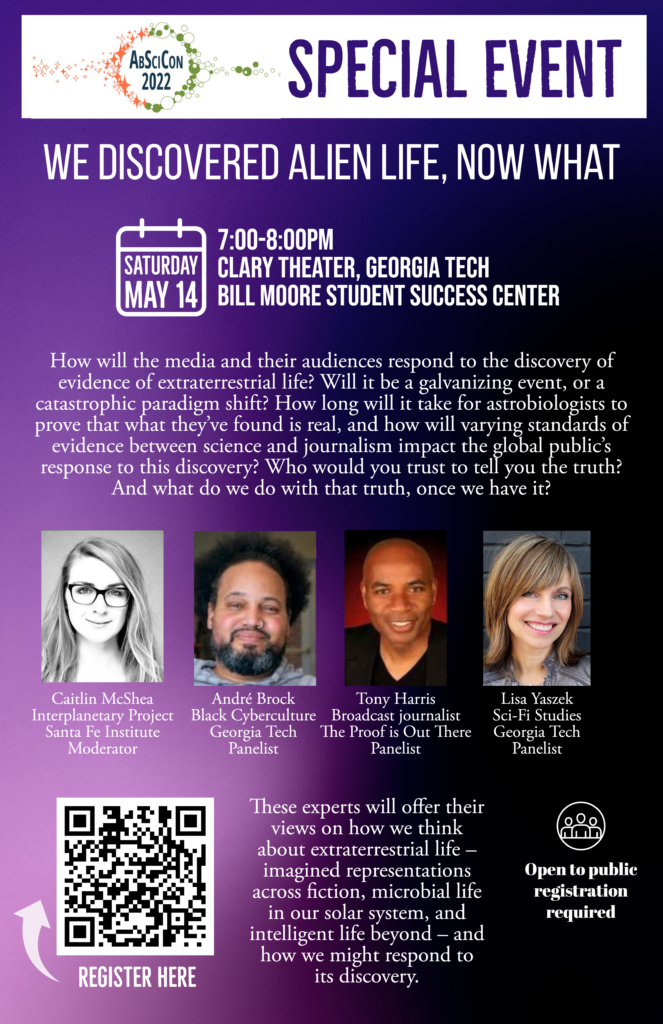
Register here: https://www.eventbrite.com/e/we-discovered-alien-life-now-what-tickets-311041843527
Special PSAS: A Stress-based Framework for Understanding Icy Worlds as a Population of Solar System Bodies
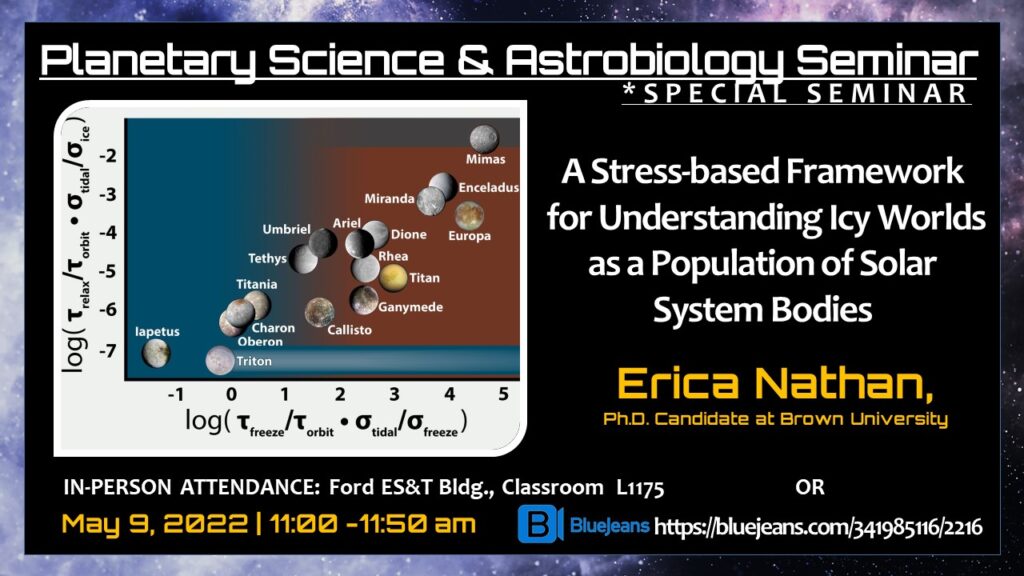
Speaker: Erica Nathan, PhD Candidate in the Department of Earth, Environmental and Planetary Sciences at Brown University
Abstract: Icy worlds are among the highest priority destinations to search for life beyond Earth and yet remain a population of Solar System bodies still early in characterization. Building on the legacies of reconnaissance missions, we need a process-based framework to identify the key gaps in our understanding of the evolution of icy worlds, both as a class of objects and for specific bodies. To investigate the processes which control the state of global stress on icy worlds and how these relate to tectonic and cryovolcanic resurfacing through time, we synthesize the geologic histories of icy worlds and build regime diagrams based on a first order set of stress mechanisms. To first order, we find that the evolution of icy worlds depends on the relative importance of freezing versus tidal stresses they experience over time and identify outliers to this trend which require additional planetary modification processes to explain their features. A key outcome of this interpretive framework is the gaps in knowledge it identifies, pointing towards a path forward for advancing our understanding of icy worlds as individuals and a population of Solar System bodies. In particular, higher order processes can be explored through a combination of analog experiments freezing water spheres and numerical modeling.
Congrats to 2022-2023 Astrobiology Fellows!
Congratulations to our 2022-2023 Astrobiology Fellows: Claire Elbon, Tatiana Gibson, Emmy Hughes, and Sharissa Thompson!
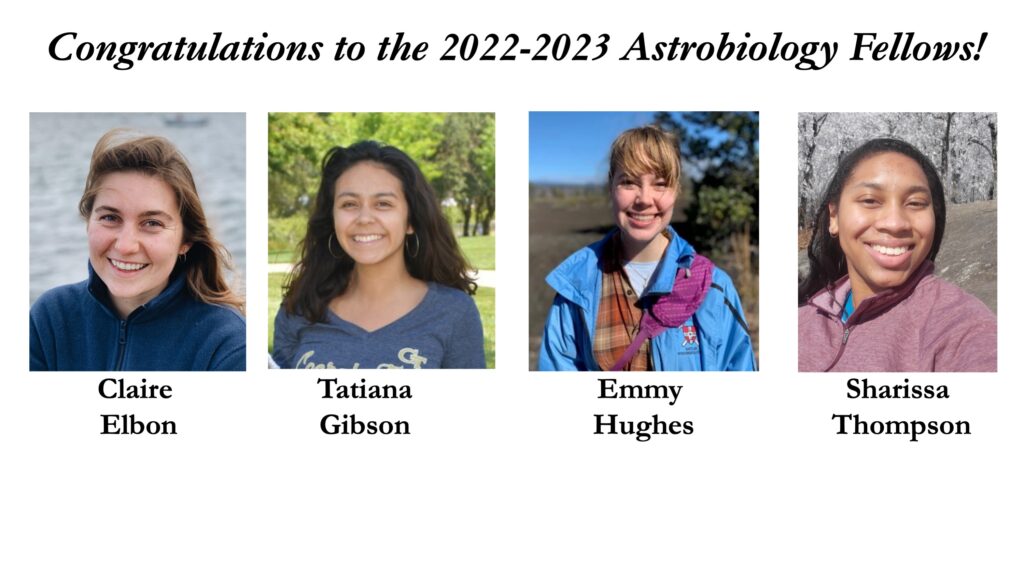
Congratulations to Micah Schaible!
Please join me in congratulating Dr. Micah Schaible on receiving the inaugural Georgia Tech College of Sciences Research Faculty Community Trailblazer Award for his leadership in co-founding ExplOrigins — thank you, Micah, for your constant service to the GT astrobiology community, particular ECRs, over the past five years!
More about the awardees and their accomplishments here.
